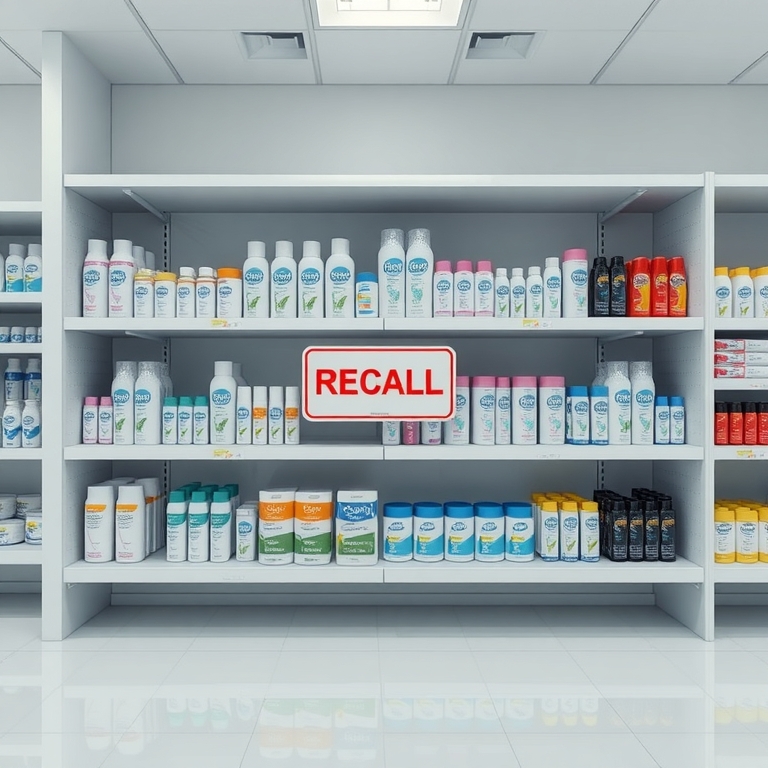In a surprising turn of events, the U.S. Food and Drug Administration (FDA) has issued a significant recall affecting several well-known deodorant brands across the country. This development has sent ripples through the consumer goods industry and caught the attention of millions of consumers who rely on these products daily. The recall, prompted by contamination concerns, underscores the critical importance of stringent safety standards in the manufacturing and distribution of personal care items.
The recall, announced earlier this week, involves multiple batches of deodorants from leading brands that have become household names. These products, which have enjoyed widespread popularity due to their effectiveness and brand loyalty, are now subject to intense scrutiny. The FDA’s decision follows a series of routine tests that revealed the presence of potentially harmful substances at levels exceeding the agency’s safety threshold. This has raised alarms about the possible health risks posed to consumers and has prompted swift action to mitigate any harm.
At the heart of the issue is the detection of benzene, a chemical compound classified as a human carcinogen by health authorities worldwide. Benzene is a colorless or light yellow liquid at room temperature and is primarily used as a starting material in the manufacturing of various chemicals. However, its presence in consumer products, especially those applied directly to the skin, is concerning. Long-term exposure to benzene has been linked to serious health issues, including blood disorders and an increased risk of leukemia. The FDA’s findings have thus highlighted a critical lapse in quality control measures within the affected manufacturing processes.
For the companies involved, the recall represents not only a logistical challenge but also a reputational risk. Brands that have spent years building trust and loyalty with their customer base now face the daunting task of addressing consumer concerns while ensuring compliance with regulatory standards. The companies have responded by initiating extensive investigations into their supply chains and production facilities to identify the source of the contamination. Many have also pledged to cooperate fully with the FDA to resolve the issue swiftly and to prevent future occurrences.
This recall serves as a stark reminder of the complexities and vulnerabilities inherent in global supply chains. The manufacturing of personal care products often involves a multitude of suppliers and subcontractors spread across different regions, each responsible for specific components or processes. This intricate network, while efficient in many respects, can also create blind spots where quality control measures might falter. As companies strive to maintain competitive pricing and meet consumer demand, the pressure to streamline operations can sometimes lead to oversights with significant consequences.
For consumers, the recall has sparked a wave of concern and confusion. Many have taken to social media and online forums to express their worries and seek advice on how to proceed. The affected brands have been proactive in communicating with their customers, providing clear instructions on how to identify recalled products and outlining the steps for returning or disposing of them safely. Despite these efforts, the incident has prompted a broader conversation about product safety and the role of regulatory bodies in safeguarding public health.
The FDA, for its part, has reiterated its commitment to ensuring the safety of consumer products. In a statement, the agency emphasized the importance of regular monitoring and testing, and the need for manufacturers to adhere to stringent safety protocols. The recall is a testament to the vigilance of the FDA in fulfilling its mandate to protect public health, and it highlights the ongoing challenges faced by regulatory bodies in keeping pace with the rapidly evolving consumer goods landscape.
In the wake of the recall, industry experts are advocating for a reevaluation of quality assurance practices across the board. There is a growing consensus that companies must invest more in advanced testing technologies and enhance transparency in their supply chains. Such measures could not only prevent future incidents but also bolster consumer confidence in the safety of everyday products. The recall also raises questions about the adequacy of existing regulations and whether more stringent measures are needed to address emerging risks in the production of personal care items.
In conclusion, the FDA’s recall of popular deodorants due to contamination concerns is a significant event with far-reaching implications. It serves as a wake-up call for manufacturers, regulators, and consumers alike, highlighting the need for rigorous safety standards and effective oversight in the consumer goods industry. While the immediate focus is on addressing the current issue, the incident presents an opportunity for all stakeholders to reflect on and improve the systems in place to ensure the safety and integrity of products that millions of people rely on every day. As the situation unfolds, it will be crucial for the industry to learn from this experience and take proactive steps to safeguard public health and maintain consumer trust.

Leave a Reply